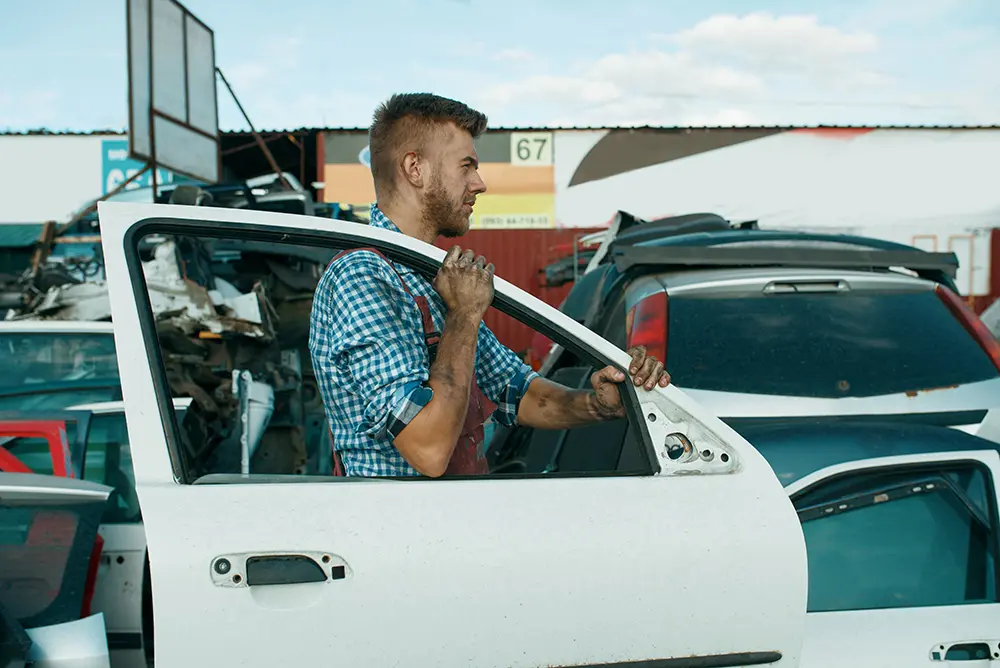Recyclers in Europe have been assured of a key role as the EU looks for greater circularity when it develops its industrial strategy over the next five years.
The commissioner responsible for the circular economy (CE), Aurel Ciobanu-Dordea, stressed the importance of both a CE and recyclers when speaking at the International Automobile Recycling Congress in Antwerp on 20 June. He also suggested the Waste Directive could be re-framed as a ‘resource’ directive when it is next reviewed.
Ciobanu-Dordea’s wide-ranging address also floated the idea of lower taxes for recycled content in new products; embraced chemical recycling (CR) as a complement technology to mechanical recycling; and suggested more would be done to retain critical raw materials and other vital resources within the EU.
‘Tsunami’ of regulations
He began by apologising for the previous ‘hectic four-to-five years’ when the European Commission had prepared a ‘tsunami’ of regulations in the wake of the Green Deal, saying he had listened to calls for greater predictability in future.
‘We will act in a more integrated way. We will try to make new proposals as a package because this will improve the conception.
‘In practice, CE models are still reserved to the pioneers and on the fringes of the economy. We need to make the fringes the mainstream. It should be the objective in the next decade that circularity and circular business models become more dominant.
‘We aim to work with you, with the industry,’ the commissioner told delegates. ‘You are likely to become the compass of a strategic economy and competitiveness.’
‘Only solution‘
Ciobanu-Dordea acknowledged that the political complexion of Europe would be changing after the recent elections so the challenge was to persuade the new policy makers in the Parliament. He quoted recent Council statements that underlined circularity was ‘the only solution’ for the EU’s economy to survive. And in reference to the car dismantling sector, he added: ‘We need to retain steel, aluminium and plastic within the EU.’
Speaking of an imbalance between the markets for virgin materials and recyclates, the commissioner acknowledged it was not politically appealing to ‘tax virgin more’ but suggested recyclates could be taxed less alongside other measures could make them more attractive.
During questions afterwards, Ciobanu-Dordea said lower taxes for recyclates was a ‘topic for active consideration; we need to reflect on this’.
As for converting the Waste Directive to one about resources, he thought it was ‘a tall order – but we hear the call’.
Big beasts
Turning specifically to the forthcoming ELV Directive for end-of-life vehicles, the commissioner hoped it would enter into force by July 2025. He praised the recent work of the Belgian presidency in driving it forward and believed the subsequent Hungarian and Polish presidencies would maintain progress. But cautioned this would need the support of the automotive sector and the OEMs in particular.
‘Some of the big beasts of the car industry have engaged with us. But not everyone has and some have lobbied against us. We call on all manufacturers in Europe to find the median line that works for everybody.’
Ciobanu-Dordea thought that the proposed eco-design directive would ‘dovetail’ into the ELV directive in terms of the sustainability of steel, aluminium and tyres. Meanwhile, he expected the Single Use directive for plastics to recognise the use of CR for plastics and packaging.
‘Chemical recycling will play an important role as plastic exports from are removed,’ he said, while insisting that mechanical recycling would not be ‘economically intimidated’ by CR. He thought CR would be relevant for tyre recycling.
The commissioner said the ELV sector could ‘count on our door remaining permanently open’.
‘We plan to stay engaged with you – together with the automotive industry. We want to make rapid progress but with progress supported by the industry.’
Don't hesitate to contact us to share your input and ideas. Subscribe to the magazine or (free) newsletter.



